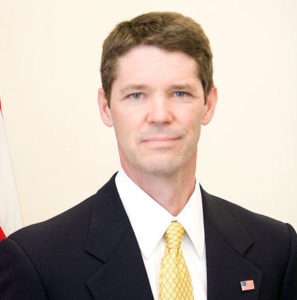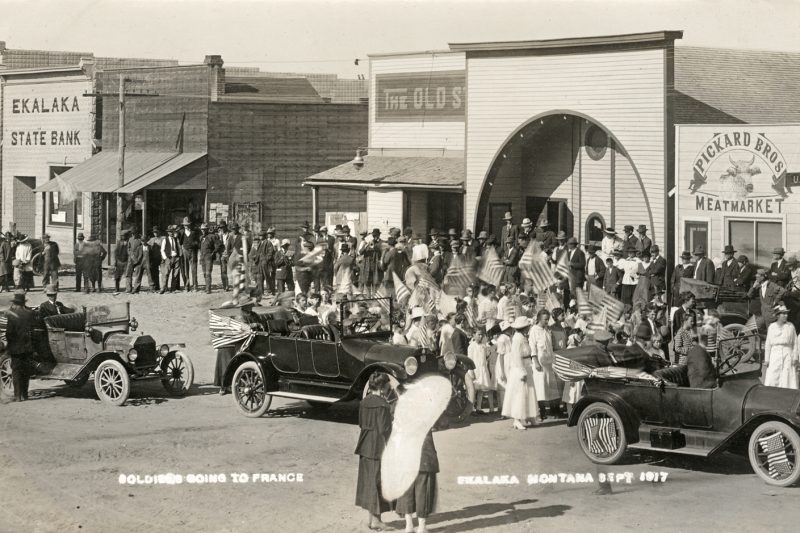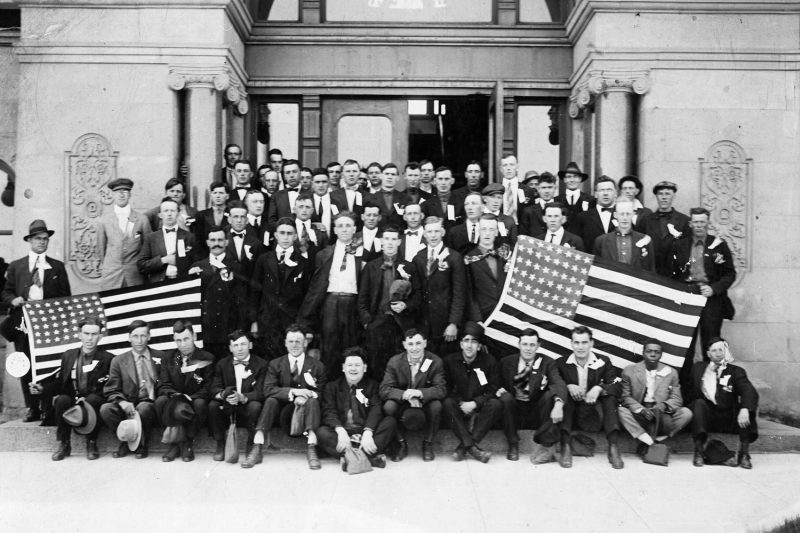Montana, 1917: Time of Trouble, Time of Change, the 44th annual Montana History Conference, will be held Sept. 21-23 in Helena. Registration closes Sept. 15.
A hundred years ago, the nation was at war. The Montana Historical Society invites everyone to reflect on how World War I impacted life under the Big Sky during this three-day event.
The conference features special workshops for educators and genealogists, sessions on a wide range of topics, and keynote presentations.

“I am especially excited to have as our opening keynote Michael Punke,” conference organizer Kirby Lambert said. “Punke is probably best known as the author of the novel The Revenant, on which the movie is based. Before that, though, he wrote a fantastic book, Fire and Brimstone: The North Butte Mining Disaster of 1917, which covers so many topics relevant to the conference theme.”
Other sessions will look at both those who supported the war and those who opposed it. After the United States officially joined the Great War in April 1917, Montanans answered every call: enlisting in the service, buying Liberty Bonds, and conserving food and fuel.
Montanans of all backgrounds went overseas – nearly 12,000 volunteered for military service and almost 40,000 served. At the same time, two-thirds of the state’s residents were either immigrants or the children of immigrants. Many had ties to Germany and Austria, and more were Irish patriots, whose enmity toward England led them to oppose any alliance with Britain.
As families saw their sons head to France, patriotism grew along with hostility toward those who opposed the war. Neighbors accused each other of being “pro-German,” and mobs caught up in wartime hysteria targeted anyone they believed did not support the war. Montana’s Sedition Act barred criticism of the war effort, and the Council of Defense cracked down on dissidents.
Even after the war in Europe ended in November 1918, the proverbial war in Montana raged on. The Spanish Flu killed thousands of Montanans from late 1918 through spring 1919. Drought ravaged the state in the years after the war, contributing to a prolonged economic depression.
“We’ll be looking at all these issues and more,” Lambert said. “Presentations will cover topics ranging from the contributions of African-American Montanans and US Forest Service fighting overseas to the involvement of women on the home front and in the field in Europe,” Lambert explained.
“In addition,” he said, “many of our speakers will discuss issues that helped define life during this time period but weren’t directly tied to the war, including gambling laws and Prohibition. And there will be tours of the State Capitol Complex and the Original Governors Mansion.”
The Montana History Conference brings together history enthusiasts from all over the state to learn more about our shared past and why that past still matters. It’s not just for professional historians or scholars —anybody with an interest in history is encouraged to attend!
To learn more about the conference visit mhs.mt.gov/education/ConferencesWorkshops. To receive a copy of the full conference program contact Joy Lewis at 406-444-1799 or email [email protected].


![July 4th Demonstration, [Gathering at Blaine COunty Courthouse].
July 4, 1917](https://livelytimes.com/wp-content/uploads/cache/2017/08/Chinook/316226494.jpg)